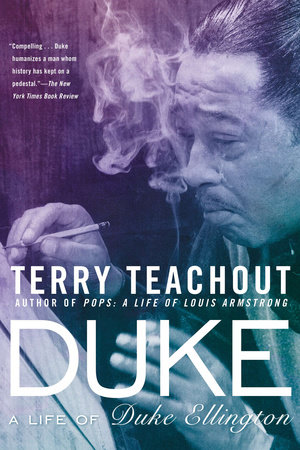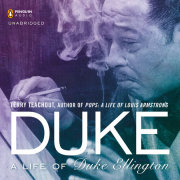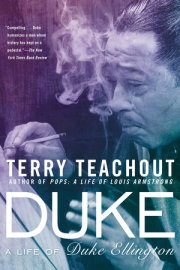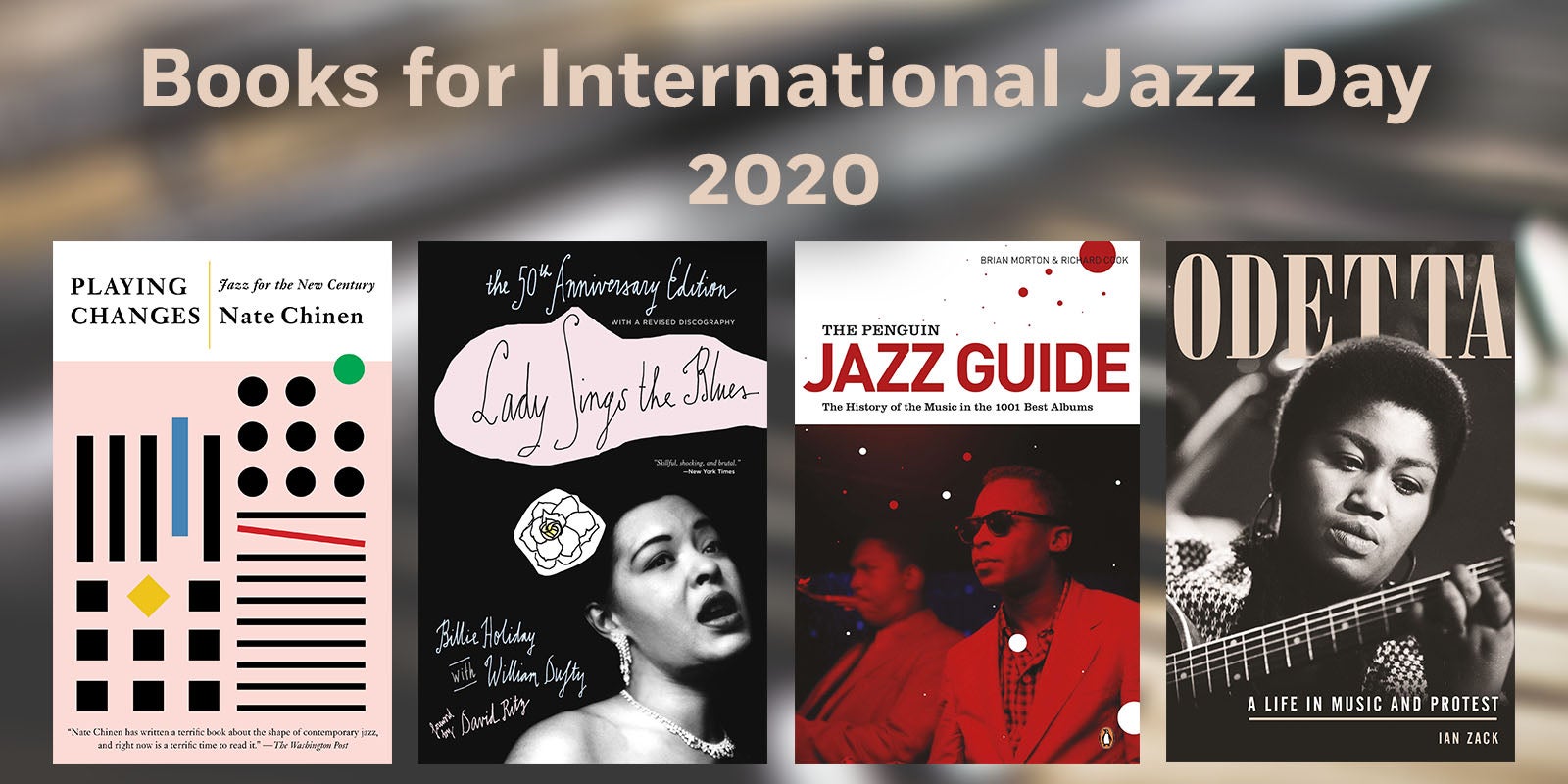Praise for DUKE"Compelling narrative flow...poised impartiality. . . .Teachout writes in an earthbound style marked by sound scholarship and easy readability. . . . DUKE humanizes a man whom history has kept on a pedestal.”
–
The New York Times Book Review“A thorough and fascinating portrait.”
–USA Today "[a] grand and engrossing biography...Thanks to this frank and sympathetic biography--whose every page is studded with sharp phrases and keen insights--we now seem to know Duke Ellington as well as we ever will or need to."
--San Francisco Chronicle
"Teachout adroitly chronicles how Ellington coaxed from his ensemble such timeless hits as "Mood Indigo." And he adeptly evokes the personalities of the ducal band..."
--The Economist
"an impressively lucid, compact narrative"
--The Boston Globe
“A thoroughly researched homage…Teachout delivers a Duke unlike any we’ve seen in previous biographies…At last, Teachout affirms that music was Ellington’s greatest mistress – and to her, the composer was unrelentingly loyal.”
–Essence Magazine
“Swinging.”
–Elle Magazine
“This well-researched biography is sure to appeal to longtime jazz fans who revel in their memories of Ellington's work and others who may want to learn more about his fascinating life.”
–Associated Press
“Mr Teachout adroitly chronicles how Ellington coaxed from his ensemble such timeless hits as ‘Mood Indigo’. . . . evokes the personalities of the ducal band.”
–The Economist
“Descriptively rich, the book is not so much a scholarly tome as it is a delightful and entertaining read. Teachout writes with clarity and verve, presenting an astonishing amount of detail in a flowing narrative that brings to life not just Ellington and his music, but much of American culture of the period.”
–National Review
“[A] grand and engrossing biography…Thanks to this frank and sympathetic biography - whose every page is studded with sharp phrases and keen insights - we now seem to know Duke Ellington as well as we ever will or need to.”
–San Francisco Chronicle
“Teachout's exhaustive mining of archives, including a number of unpublished memoirs of some of the principals in his story, gives the musical history in Duke an impressive heft.”
–The Milwaukee Journal Sentinel
“By penetrating behind the curtain, this author has delivered a book that even those who think they know Ellington will need to read.”
–Dallas Morning News
"Teachout does a commendable job of contextualizing Ellington's career."
–Austin Chronicle
“The definitive Ellington biography thus far…valuable…[one of] the most important books of 2013.”
–The Buffalo News
“Teachout captures the breadth of [Duke’s] life… with verve and insight.”
–The Huffington Post
“Teachout’s book, as in the case of his earlier one on Armstrong, is the masterwork.”
– Jazz Journal
"Dimensional, thoughtful, and rigorously researched, Duke is an enthralling read from cover to cover."
–BrainPickings.org
“Teachout…bring[s] a worthy level of scholarship to the telling of the notoriously secretive Ellington’s life.”
–The Virginia Quarterly Review (Online)
“With this exhaustive, engaging study of the greatest jazz composer of his era, Wall Street Journal drama critic Teachout solidifies his place as one of America's great music biographers.”
– Kirkus, Starred Review
“Comprehensive and well-researched…important….[an] entertaining and valuable biography.”
– Booklist, Starred Review
“Teachout gives much insight into Ellington's life, personality, working habits, and compositions. This work should appeal to Ellington enthusiasts as well as casual jazz fans.”
– Library Journal
“Revealing…Teachout neatly balances colorful anecdote with shrewd character assessments and musicological analysis, and he manages to debunk Ellington’s self-mythologizing, while preserving his stature as the man who caught jazz’s ephemeral genius in a bottle.”
– Publishers Weekly
"Terry Teachout’s biography is destined to be the definitive biography of bandleader, composer, and complex man—Edward Kennedy “Duke” Ellington."
– The American Rag
"a fascinating account...Teachout gives us a rich portrait of the man, his music and his era.. "
--Tampa Bay Tribune
Praise for Pops; A Life of Louis Armstrong:“Teachout restores this jazzman to his deserved place in the pantheon of American artists.”
–
The New York Times "Thirty-eight years after Louis Armstrong's death, Terry Teachout has made the possible, possible: He has written a definitive narrative biography of the greatest jazz musician of the twentieth century."
–
San Francisco Chronicle “A masterpiece.”
–Seattle Times
“Teachout excels at conveying the interplay between Armstrong the artist and Armstrong the entertainer, and at examining the particular challenge of his legacy.”
–The New Yorker
“[An] exceptional biography… Upon finishing this definitive biography, the reader is instructed to flip to the discography, download every last song, listen and grin the hell back.”
–The Washington Post
Amazon Best Books of the Month, December 2009
“Crafted with a musician's ear and an historian's eye, Pops is a vibrant biography of the iconic Louis Armstrong that resonates with the same warmth as ol' Satchmo’s distinctive voice. Wall Street Journal critic Terry Teachout draws from a wealth of previously unavailable material – including over 650 reels of Armstrong's own personal tape recordings – to create an engaging profile that slips behind the jazz legend's megawatt smile. Teachout reveals that the beaming visage of "Reverend Satchelmouth" was not a mark of racial subservience, but a clear symbol of Louis's refusal to let anything cloud the joy he derived from blowing his horn. "Faced with the terrible realities of the time and place into which he had been born," explains Teachout, "he didn't repine, but returned love for hatred and sought salvation in work." Armstrong was hardly impervious to the injustices of his era, but in his mind, nothing was more sacred than the music.
–Dave Callanan
“Teachout turns to another mighty pillar of 20th-century American culture, Louis Armstrong, a black man born at the turn of the century in the poorest quarter of New Orleans who by the end of his life was known and loved in every corner of the earth. … Teachout brings a fresh perspective… Teachout's portrait reminds us why we fell in love with Armstrong's music in the first place.”
–Publishers Weekly Starred Review
"To this fine, exhaustively researched...biography, Teachout brings an insider's knowledge--he was a jazz musician before launching a career as cultural critic and biographer."
–National Post The Afterword
"No one does better in exploring Armstrong's social context than Teachout."
–Montreal Gazette
"Compelling narrative flow...poised impartiality. . . .Teachout writes in an earthbound style marked by sound scholarship and easy readability. . . . Duke humanizes a man whom history has kept on a pedestal.”
—The New York Times Book Review
"Teachout is a sensitive writer, and one reason his biographies are moving is that he has obviously been giving himself an education in the realities of American racial history as he writes them."
—The New Yorker
"A thorough and fascinating portrait."
—USA Today
"A thoroughly researched homage…Teachout delivers a Duke unlike any we’ve seen in previous biographies…At last, Teachout affirms that music was Ellington’s greatest mistress – and to her, the composer was unrelentingly loyal."
—Essence Magazine
"This well-researched biography is sure to appeal to longtime jazz fans who revel in their memories of Ellington's work and others who may want to learn more about his fascinating life."
—Associated Press
"Mr. Teachout adroitly chronicles how Ellington coaxed from his ensemble such timeless hits as ‘Mood Indigo’. . . . evokes the personalities of the ducal band."
—The Economist
"Descriptively rich, the book is not so much a scholarly tome as it is a delightful and entertaining read. Teachout writes with clarity and verve, presenting an astonishing amount of detail in a flowing narrative that brings to life not just Ellington and his music, but much of American culture of the period."
—National Review
"[A] grand and engrossing biography…Thanks to this frank and sympathetic biography - whose every page is studded with sharp phrases and keen insights - we now seem to know Duke Ellington as well as we ever will or need to."
—San Francisco Chronicle
"The definitive Ellington biography thus far…valuable…[one of] the most important books of 2013."
—The Buffalo News
"Dimensional, thoughtful, and rigorously researched, Duke is an enthralling read from cover to cover."
—BrainPickings.org
"Teachout does a first rate job…Teachout’s book is a worthy read. It successfully brings Duke Ellington and his music back into the public consciousness, reaffirming the man’s artistic genius while telling a fascinating story."
—PopMatters.com








